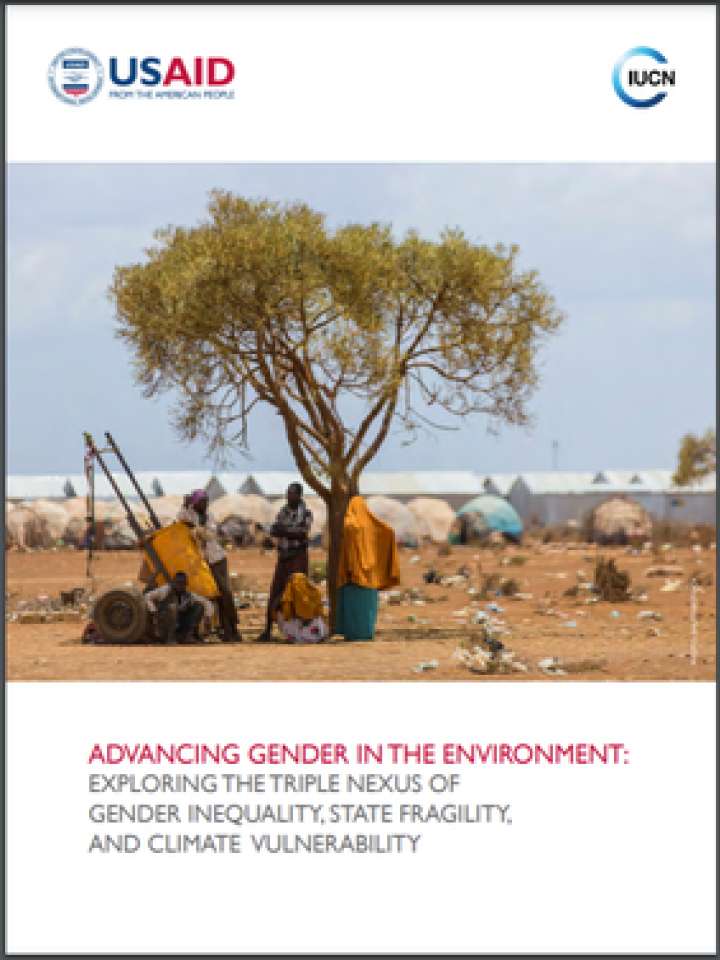Advancing gender in the environment: exploring the triple nexus of gender inequality, state fragility, and climate change
This study reinforces the need for integrated gender-responsive policy and program approaches that incorporate gender, climate, and state fragility considerations, which IUCN, together with its members, peers and partners, can pursue through ongoing knowledge building, capacity building and technical support. In any such actions, women and girls should be supported and positioned as actors for peace and resilience.
Key findings from this research include the following:
- Aspects of gender inequality, state fragility, and climate vulnerability affect each country to varying degrees;
- Analysis of framework results suggests that the indicators are positively correlated with one another. This means that countries with relatively higher values in one issue area tend to have relatively higher scores in the other issue areas;
- The mapping analysis demonstrated that the triple nexus issues are particularly prevalent in sub-Saharan Africa and the Middle East and North Africa; and
- There are significant data gaps for gender, environmental, and fragility indicators, especially in small island states. This suggests an urgent need for investment in sex-disaggregated and environmental data, as well as informing peace and resilience efforts.
Explore further

